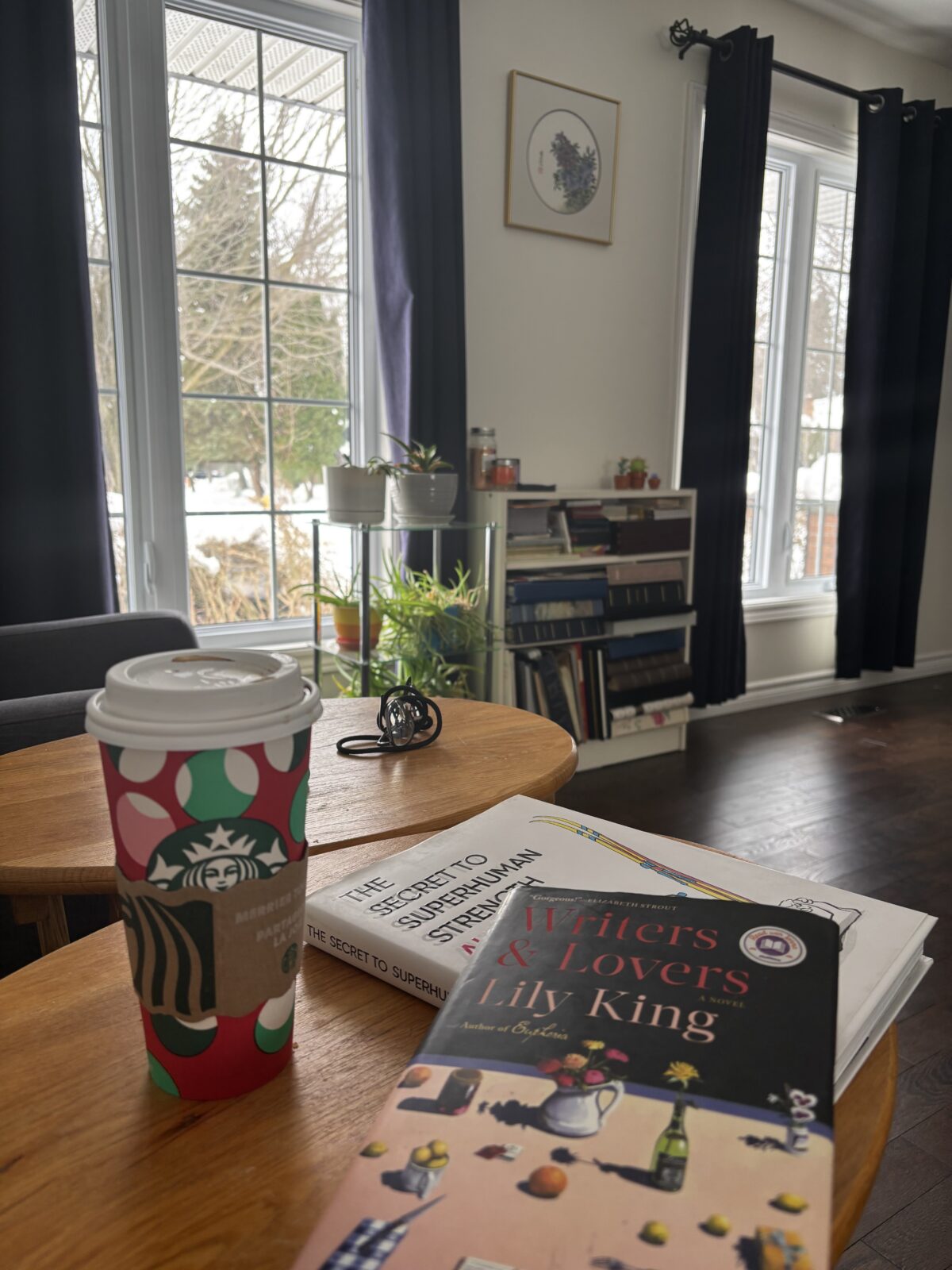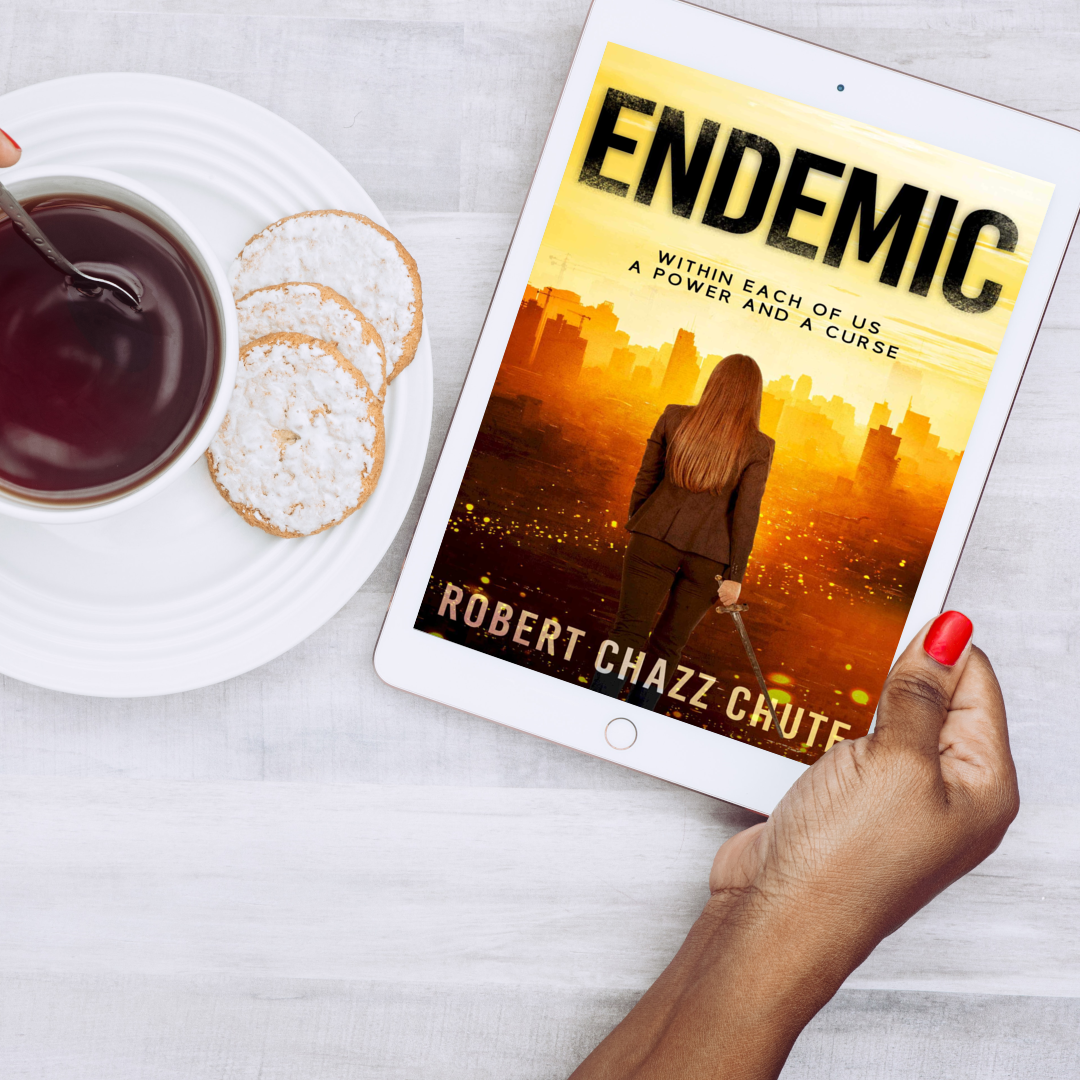Some readers mistake a fictional character’s opinion for that of the author. Were that true, I’d be in prison by now. My plots are full of characters living on the edge of society…okay, that much is me. Let’s start again: Not every thought a character espouses reflects my values. However, some books strike closer to home than others.
My mission is to entertain. I’m not trying to predict the future. I do extrapolate plenty, and in the last few years, reflecting reality has become more unsettling. Inevitably, my political views slip in where appropriate. No apologies or regrets on that front.
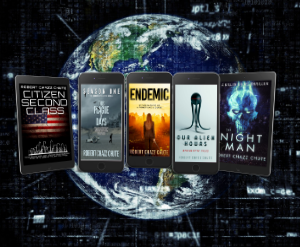
“I don’t try to predict the future. All I want to do is prevent it.”
~ Ray Bradbury
Here are five times my work reflected reality closer than I expected:
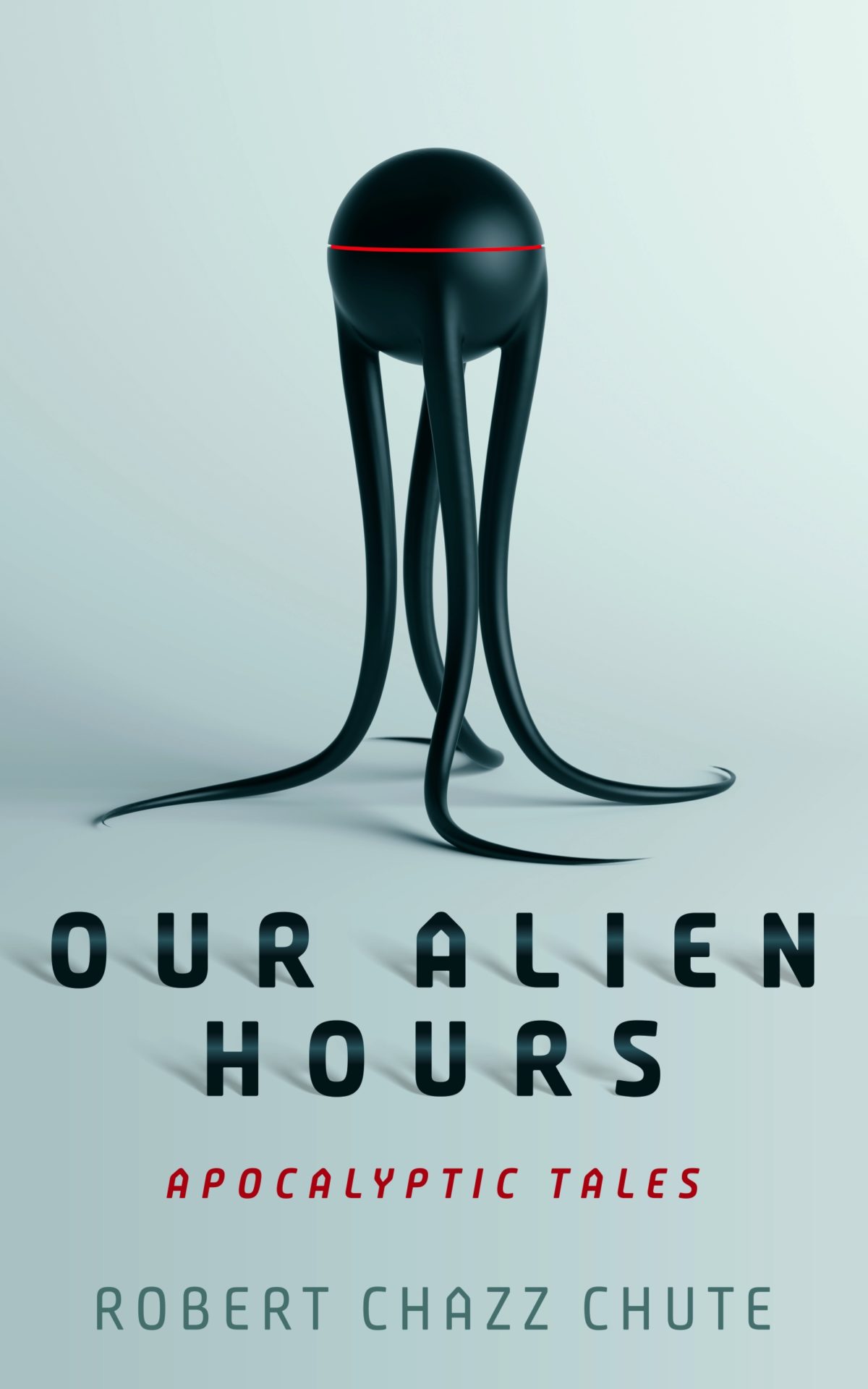
In Our Alien Hours, the alien threat rises from ocean. Seen the news lately? Nobody seems to care, but I’m prescient!
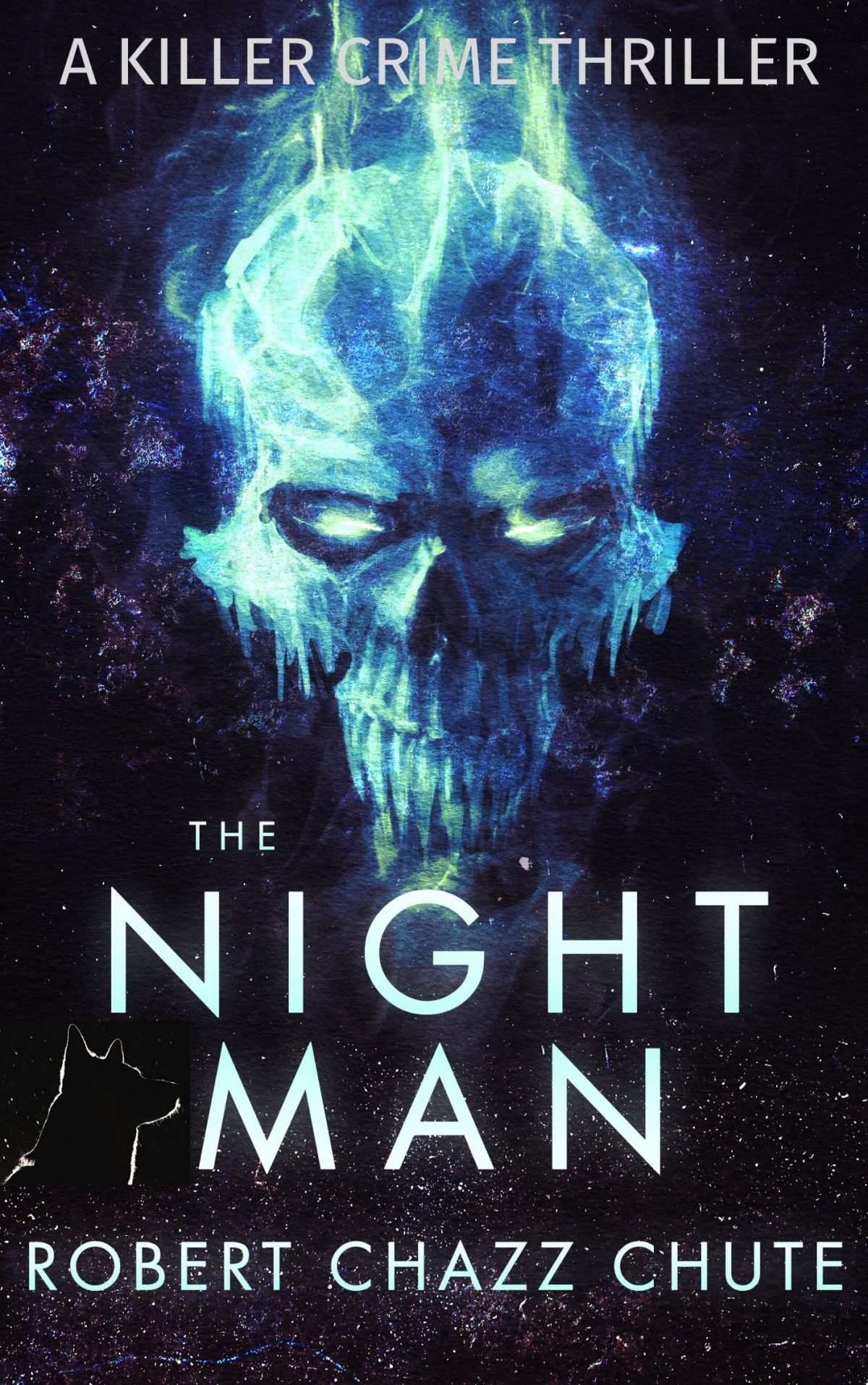
In The Night Man, the dad is a drug smuggler, but he’s just trying to get cheap Canadian drugs to Americans who are in need. The protagonist is a wounded veteran with few choices after he is medically discharged.
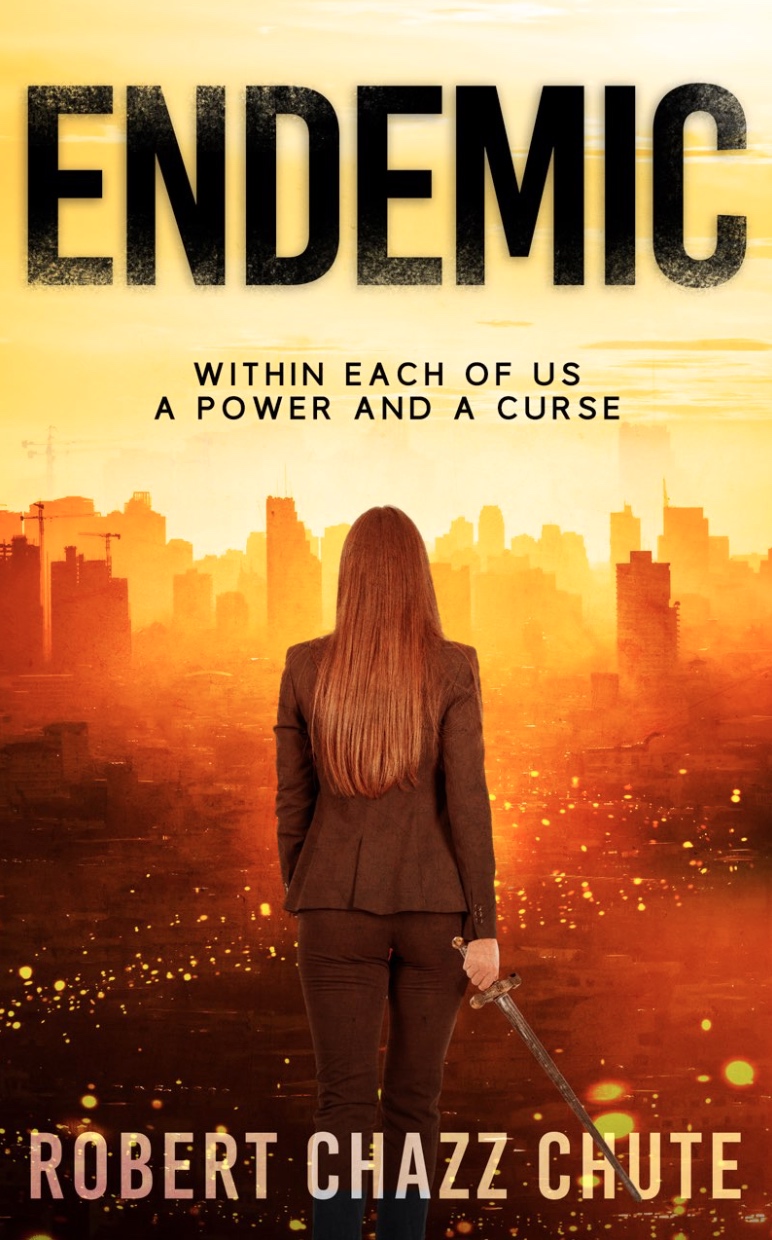
The genesis of Endemic is a virus that kills billions. Many of the survivors suffer cognitive impairment. Long-COVID (and repeated infection) gives some people brain fog, and since the disease is now endemic, we will continue to see such ill-effects to brain health.
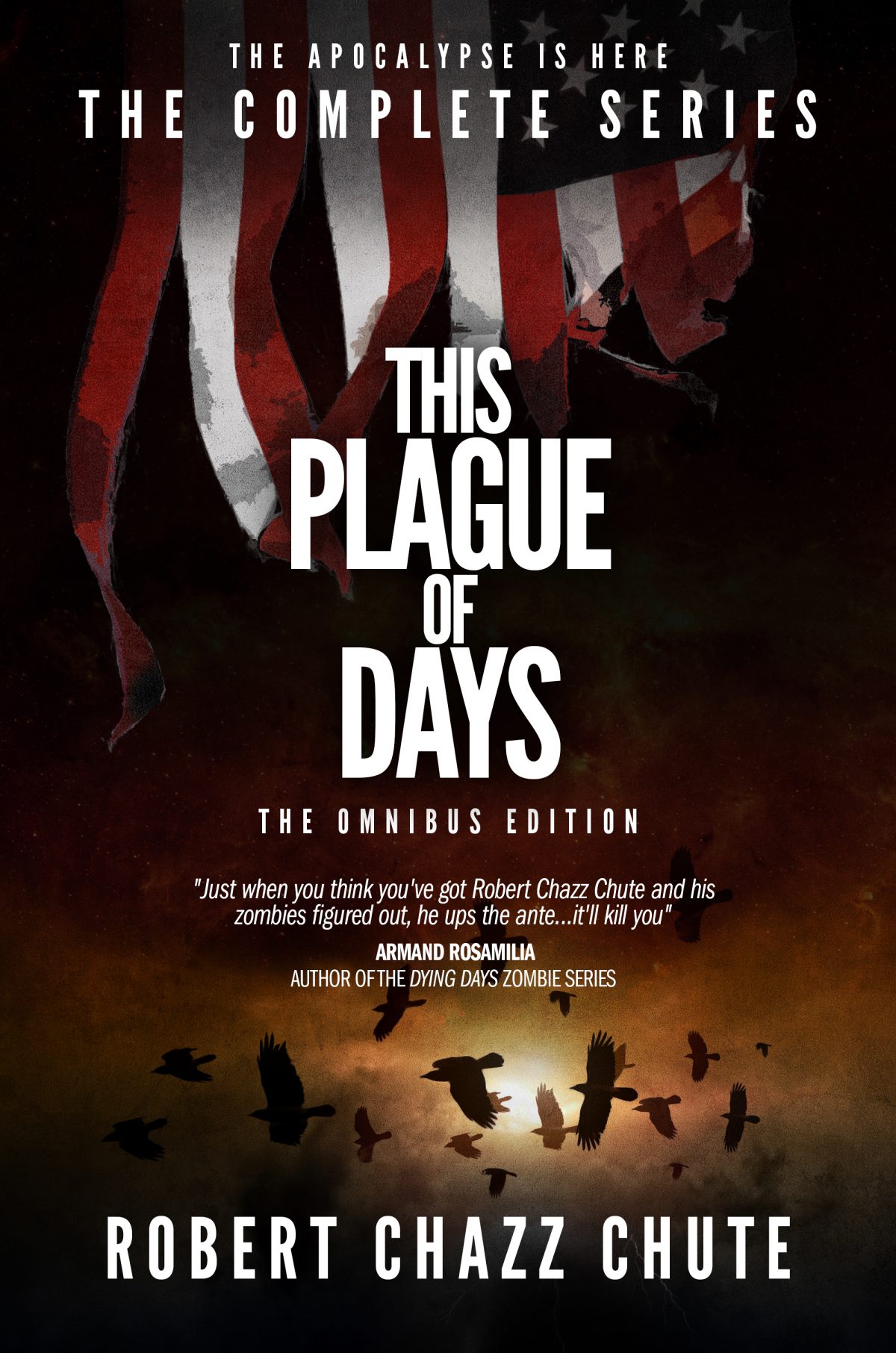
In This Plague of Days, paramedical professionals were recruited to make do and join the fight against a pandemic. Long ago, I sat in a meeting about pandemic preparedness. This was part of the plan. I informed those in charge that this was a terrible idea and gave multiple reasons why. I was fired for it. In This Plague of Days, a non-medical person works in a hospital. She and her baby are infected because of that ill-conceived strategy.
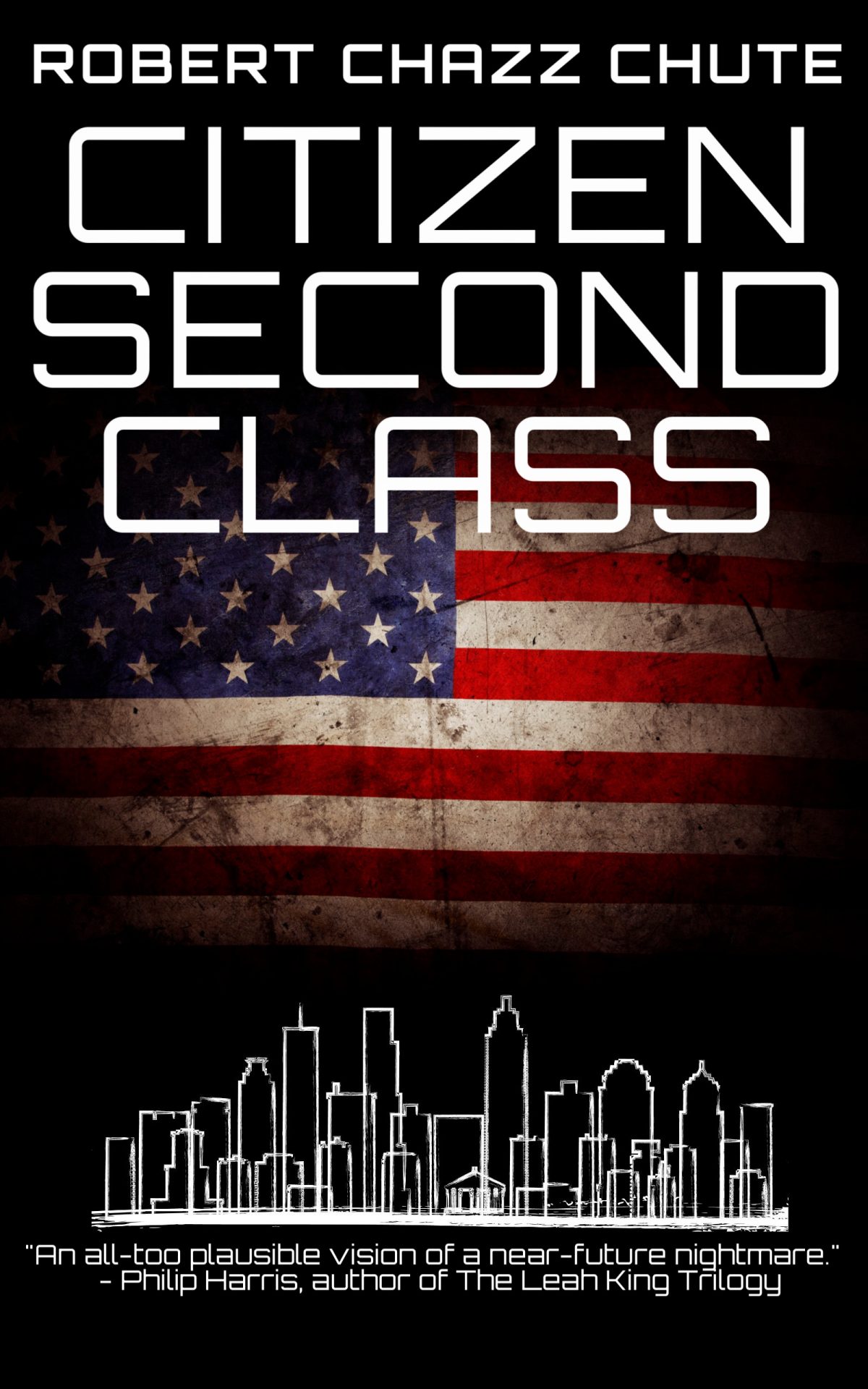
Citizen Second Class is unfolding now. The uncaring elite are building bunkers and fortifying their islands, while the lower classes worry about providing for their families.
Then, of course, there’s my upcoming thriller, Vengeance Is Hers.

Given all that’s happening in the news and the many failures of the justice system, I predict there will be an appetite for vigilante justice thrillers.
Coming in 2025. Buckle up!



